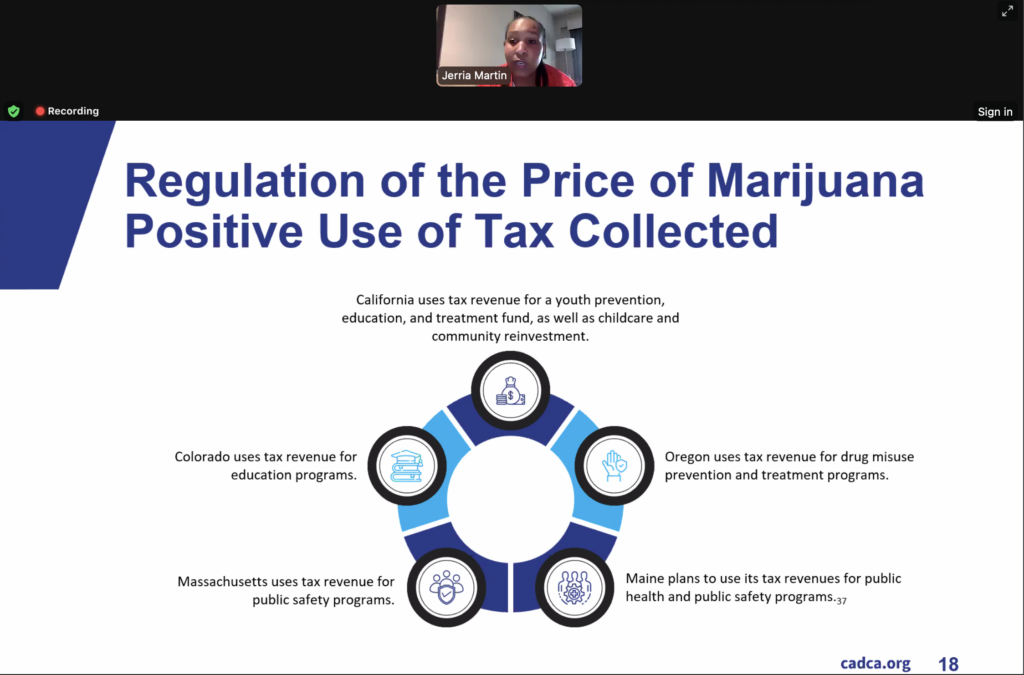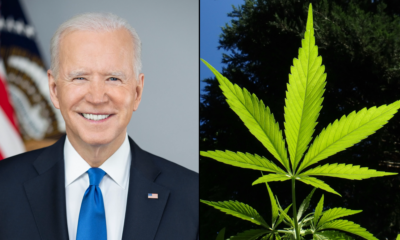Politics
Federal Marijuana Prohibition Makes Youth Prevention Efforts ‘More Difficult,’ Top Anti-Drug Group Official Says

Federal marijuana prohibition “makes it even more difficult” to implement unified health and safety policies across state markets, a member of a leading prohibitionist organization says.
During a webinar on cannabis policy issues on Wednesday, staff with the non-profit Community Anti-Drug Coalitions of America (CADCA) discussed a variety of regulatory concerns amid the state reform movement—but often framed them in ways that suggested legalization is inevitable and also pointed to specific regulations within legal frameworks that they preferred.
While CADCA as a national institution has opposed congressional bills to legalize marijuana and free up banks to work with state-licensed cannabis businesses, the webinar offered a more nuanced perspective, with staff focused on youth prevention departing from a strict prohibition perspective and signaling that it may ultimately be more effective to achieve certain key goals by working within legalization models to affect change.
Lesley Gabel, who serves on CADCA’s Coalition Development Support Team (CDS), said for example that it would be “great” if there were universal warning symbols on cannabis products that could be identified across the patchwork of state cannabis markets to ensure that consumers, particularly youth, are aware of the THC content.
But she said that’s “hard because it’s federally illegal, so that makes it even more difficult to work in prevention to have something like this.”
Despite CADCA’s consistent opposition to marijuana reform, conversation during webinar gave a sense that, among certain membership at least, there’s an understanding that legalization may be inevitable, and so it’s important to consider methods of mitigating possible public safety harms without necessarily outright opposing all attempts at reform.
Marijuana Moment that asked Gabel whether she could envision a scenario where CADCA supports a federal legalization bill if it included their desired safeguards.
She said while she doesn’t speak on behalf of CADCA, “the one thing CADCA and all of us in prevention would certainly agree upon is: How can we come together and unite to have some of the prevention that we can standardize and have a collective front?”
“We know that, when we work together cohesively and with some of these common strategies and common things that we know will work across all places, then that’s certainly something I’m sure that we could all try to find a way to come together,” she said. “What that looks like, I’m not quite sure. But it would certainly be great for us to find a way to unite, especially around the packaging and labeling.”
There were other telling moments from the virtual event, which effectively provided supporters and prospective members with a roadmap to influencing marijuana policy that goes beyond strict prohibitionism.
For instance, at one point the hosts talked about different ways that states with legal cannabis markets have distributed tax revenue to support programs that they favor, particularly when it comes to youth prevention efforts.

In California, “they use their tax revenue for youth prevention, education, a treatment fund, as well as childcare and community reinvestment,” Jerria Martin, a program manager at CADCA, said. “Oregon uses tax revenue for drug misuse prevention and treatment programs.”
“Whether it’s prevention, recovery, treatment or even just education and public safety programs, we’re seeing states now taking that smart move and putting that tax [revenue] there and actually using this to assist the communities,” she said.
Later in the webinar, the CADCA members pull up a series of charts from a 2021 study published by the American Medical Association (AMA) that showed how state-level marijuana legalization is associated with dramatic decreases in cannabis-related arrests and a major narrowing of racial disparities in such arrests.

“It’s just definitely, again, something to take into consideration when you have that policy in place or don’t,” Martin said.
Marijuana Moment reached out to CADCA for comment about the webinar, but a representative was not immediately available.
CADCA also found itself at the center of a controversy in 2022, pulling a page listing corporate sponsors such as NFL, Krispy Kreme and several pharmaceutical companies from its site after cannabis advocates called them out for supporting an anti-reform agenda.
Another CADCA member unsuccessfully attempted to block a marijuana legalization ballot initiative in Missouri that same year.
Most recently, the organization has called on supporters to contact their congressional representatives and urge them to close a “loophole” in the next Farm Bill by banning hemp-derived intoxicating cannabinoids.
Photo courtesy of Brian Shamblen.
















